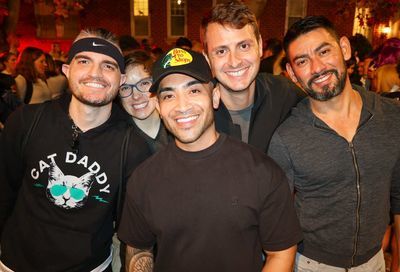Facebook outbid Google by $9 billion to secure WhatsApp

WhatsApp, the smartphone-based messaging system that boasts over 450 million active users per month, has been purchased by Facebook for an incredible $19 billion. Facebook’s bid for WhatsApp was $4 billion in cash, $12 billion in shares and an additional $3 billion in restricted stocks. To put that in perspective, the hard cash Facebook paid is the same as the nominal GDP of Fiji, while the total amount of shares and stocks is equal to the nominal GDP of Jamaica. In total, Facebook spent on WhatsApp almost as much as the market value of all of Afghanistan’s final goods and services for the year 2012. It is the largest purchase of a company by venture capitalists ever. We’re talking a lot of money, people. For a messaging service that has no ads and is free for the first year.
However, it wasn’t the only company to bid on WhatsApp. Google was also keen to snap up the app, which it saw as a key rival to Facebook’s Messenger service. Google reportedly offered $10 billion, but, unlike Facebook, didn’t include a seat on its board. It also, rather unusually, offered a cash sum to WhatsApp if it was kept informed of any rival bids for the company. The Information reports that this request was turned down, but it demonstrates how serious Google was about securing the bid for the company.
Furthering that, Google CEO Larry Page met with WhatsApp CEO Jan Koum in an attempt to persuade him against selling his app to Facebook. Page offered to outbid Facebook, whose CEO, Mark Zuckerberg, had met with Koum three days earlier. Page told Koum that WhatsApp was “a big threat to Facebook.”
Facebook evidently agreed, seeing the popularity of WhatsApp, which reportedly adds 1 million users to its ranks every day, as a threat to his own Messenger. With Facebook’s winning bid, Zuckerberg and Co. can rest knowing that WhatsApp will co-exist with Messenger under the Facebook umbrella. As for users of WhatsApp, the service is expected to operate semi-independent of Facebook — much like Instagram — with Koum stating that he has no plans to introduce ads or drop the one-year of free access new users currently enjoy.
Whatever Facebook eventually decides to do with WhatsApp, it’s clear that both it and Google are very serious about the mobile messaging market. For Google, its next move could be to focus on one of the other popular chat applications, such as Kik and WeChat, or to double down on adding users to its Hangouts app, which replaced Google Talk.
For Jan Koum, who co-founded WhatsApp in 2009, regardless of what the next move for his company is, we imagine the future is looking pretty damn good.
Support Metro Weekly’s Journalism
These are challenging times for news organizations. And yet it’s crucial we stay active and provide vital resources and information to both our local readers and the world. So won’t you please take a moment and consider supporting Metro Weekly with a membership? For as little as $5 a month, you can help ensure Metro Weekly magazine and MetroWeekly.com remain free, viable resources as we provide the best, most diverse, culturally-resonant LGBTQ coverage in both the D.C. region and around the world. Memberships come with exclusive perks and discounts, your own personal digital delivery of each week’s magazine (and an archive), access to our Member's Lounge when it launches this fall, and exclusive members-only items like Metro Weekly Membership Mugs and Tote Bags! Check out all our membership levels here and please join us today!




















